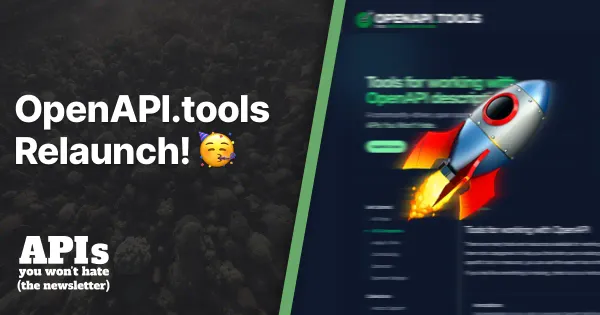Powerful HTTP/API Clients: Alternatives to Postman
A comparison of quick and easy graphical HTTP clients you can use if you're considering alternatives to Postman.
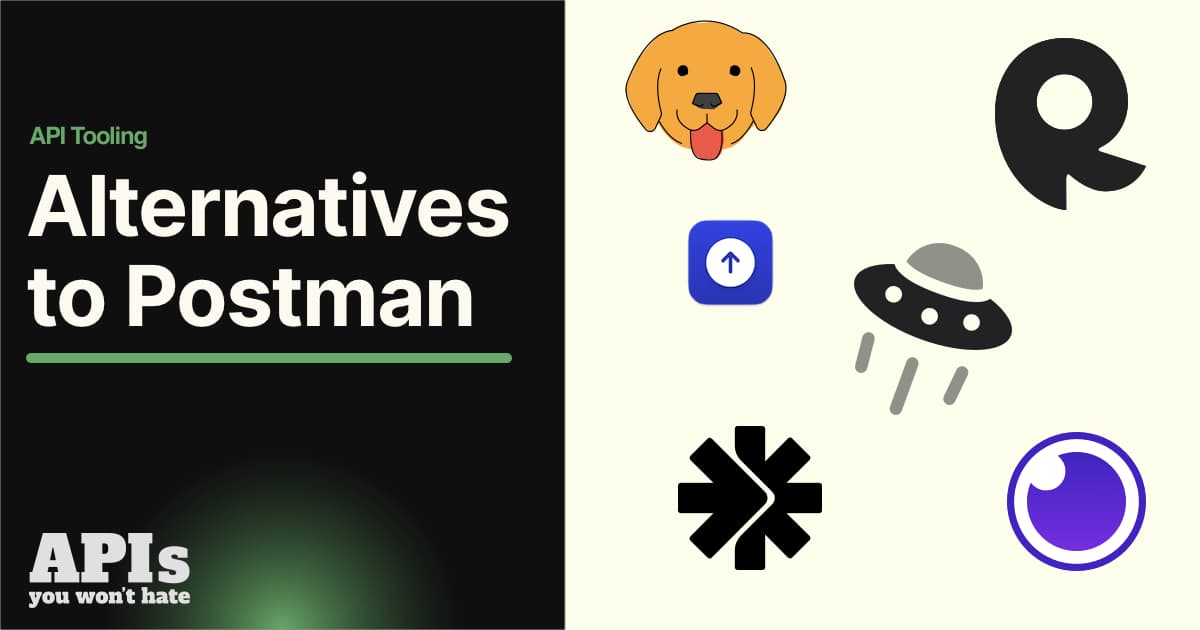
Postman is an incredibly popular tool for testing and developing APIs. In Build APIs You Won't Hate, 2012 I called it the Adobe Photoshop of API development, the tool all of us would use all day every day to get our APIs off the ground, and make sure they were working beyond that.
It started off life as a simple, free, Chrome extension for sending HTTP/API requests, managing collections of complex requests so you could send them over and over, and this was a rudimentary "test my API is working" workflow for those of us didn't want or need to get stuck into a full test suite, and let us poke-and-prod APIs for debugging.
Since 2012 Postman have added so many more features, rewriten the app and UI several times, added so many features, covering API documentation, mocking, testing, and monitoring, that it became hard to use it as a simple HTTP client.
Those of us who wanted a tool for simple poke-and-prod use-cases and sharing collections have many high quality HTTP/API clients to chose from.
Insomnia
Insomnia is a powerful, open-source REST and GraphQL client that emphasizes simplicity and productivity. It offers a clean UI, collections, environment variables, cloud workspaces with team collaboration, testing, mock servers, and testing.

Insomnia started off life open-source and was acquired by Kong, who have been putting in serious effort to get Insomnia onto feature parity with Postman, meaning it's got some of the same bloat problems as Postman. That does however make it an easy choice to anyone looking to move away from Postman but maintain most of the same functionality and workflow, especially with a Run in Insomnia button working similarly to the Run in Postman button.
Insomnia is OpenAPI-compatible via an import feature, but the environment variable support was a little broken and lead to some difficulty creating a fluid workflow: Read more here.
- Availability: ✅ Web, ✅ macOS, ✅ Windows, ✅ Linux.
- Website: insomnia.rest
Bruno
Bruno is a newer open-source HTTP client, which aims to use Git (other other source control) to provide the collaboration on collections instead of a SaaS service.
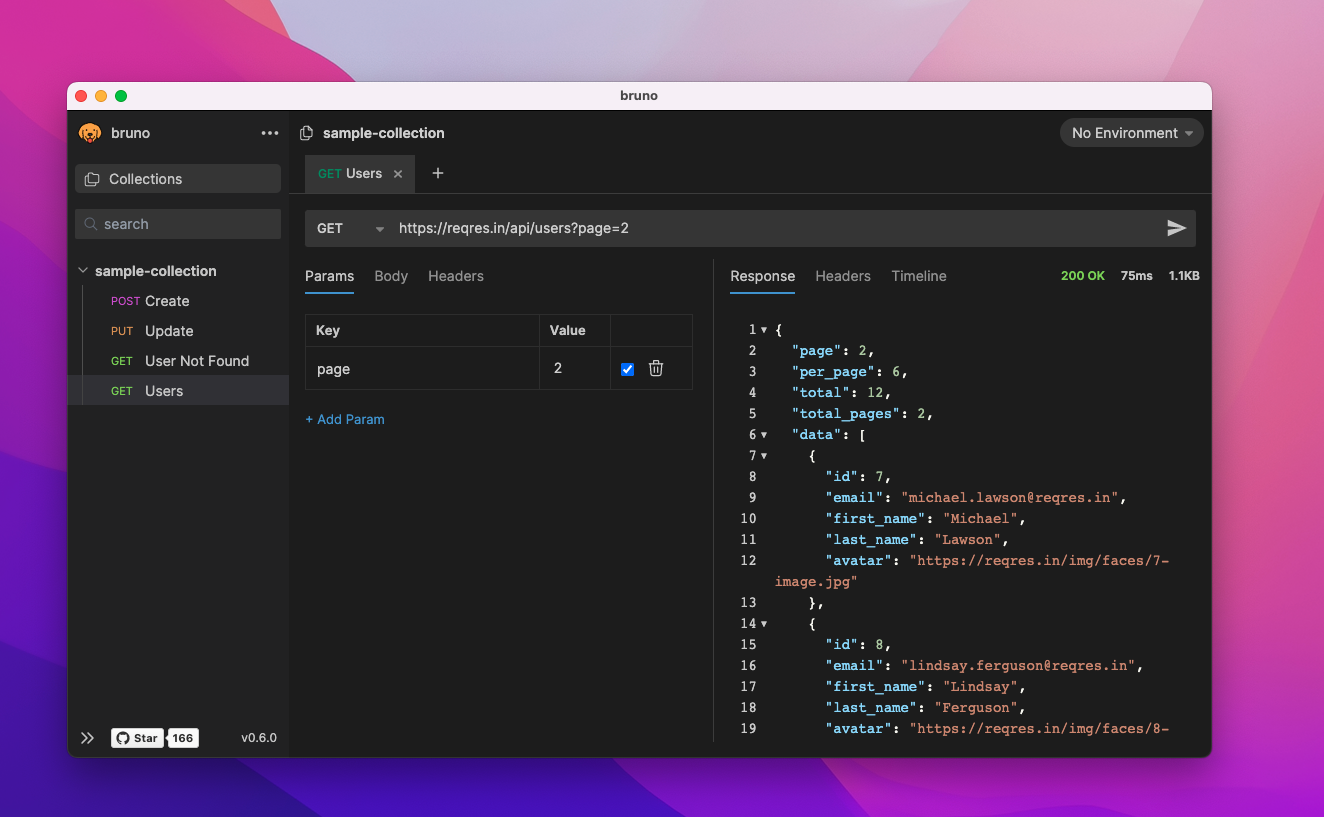
Bruno supports OpenAPI Import, which pulls in an OpenAPI document and creates a simple collection of requests and responses out of it. It's a little fiddly, and I'm not sure how you'd handle reimporting an OpenAPI that has evolved over time, but it saves you having to build your own.
$19 for a two-year license enables a few extras like the OpenAPI Designer which is
- Availability: ❌ Web, ✅ macOS, ✅ Windows, ✅ Linux.
- Website: usebruno.com
Hoppscotch
Formerly known as Postwoman, Hoppscotch is a fast, open-source API development tool available as a web app. It supports REST, GraphQL, and WebSocket requests, and provides real-time collaboration through workspaces.
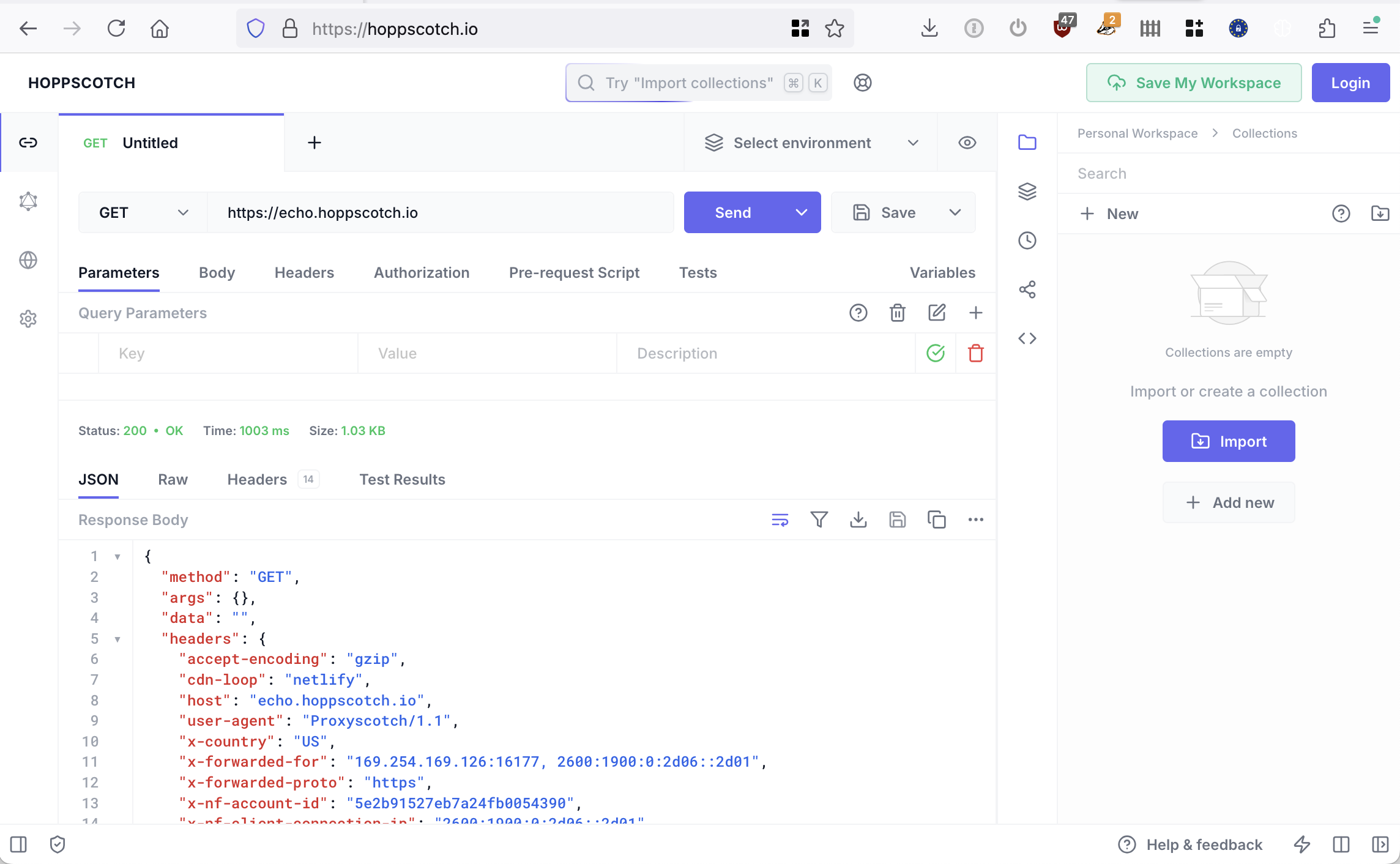
Great for those who prefer lightweight, web-based tools with real-time collaboration, who aren't looking for a desktop experience. The interface allows for import from OpenAPI, Postman, Insomnia, Gist, or HAR.
- Availability: ✅ Web, ❌ macOS, ❌ Windows, ❌ Linux.
- Website: hoppscotch.io
RapidAPI (formerly Paw)
RapidAPI provides a comprehensive platform for API development, testing, and sharing. Originally known as Paw, it is now integrated into RapidAPI, offering a wide range of API-related tools, but still completely free. This is a native macOS application, unlike many of the others which are desktop-wrapped web applications, so it should be a little lighter on your CPU.
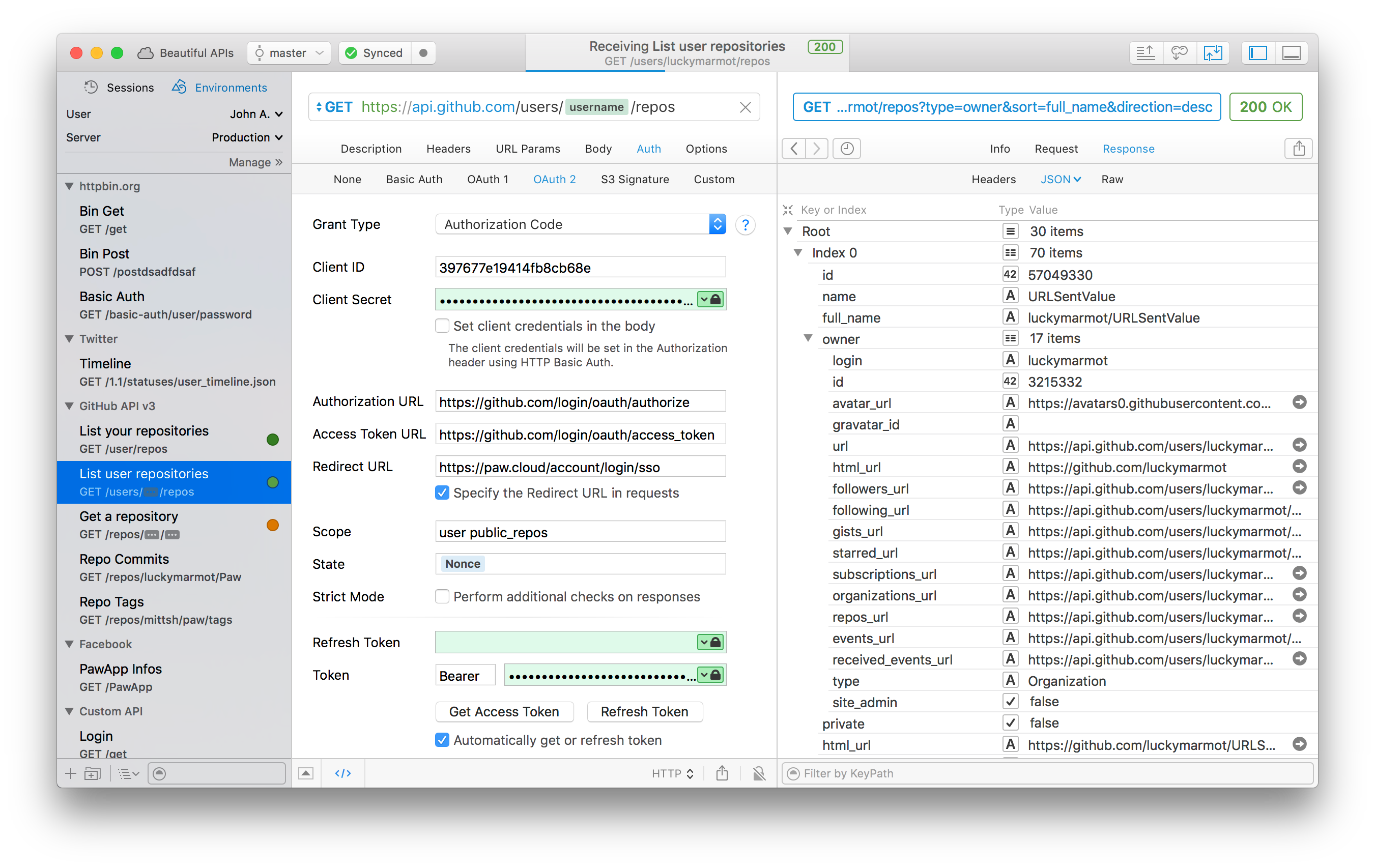
Best for developers working within the RapidAPI ecosystem, which provides API catalogs, an API marketplace to enable discovery and monetization, and even an API gateway putting it on par with the Kong + Insomnia experience.
It does have OpenAPI support, but the website calls it Swagger which suggests it will be older versions. OpenAPI v3.0 is supported by one of the many extensions available.
- Availability: ❌ Web, ✅ macOS, ❌ Windows, ❌ Linux.
- Website: paw.cloud
GetAPI
GetAPI is another native macOS application which is very clear about what it is: a "dead simple HTTP client". It is designed to be easy to use, making it accessible for developers of all skill levels. Unlike RapidAPI this is not free, but freemium, with a pro license costing $39 to provide a years worth of updates.
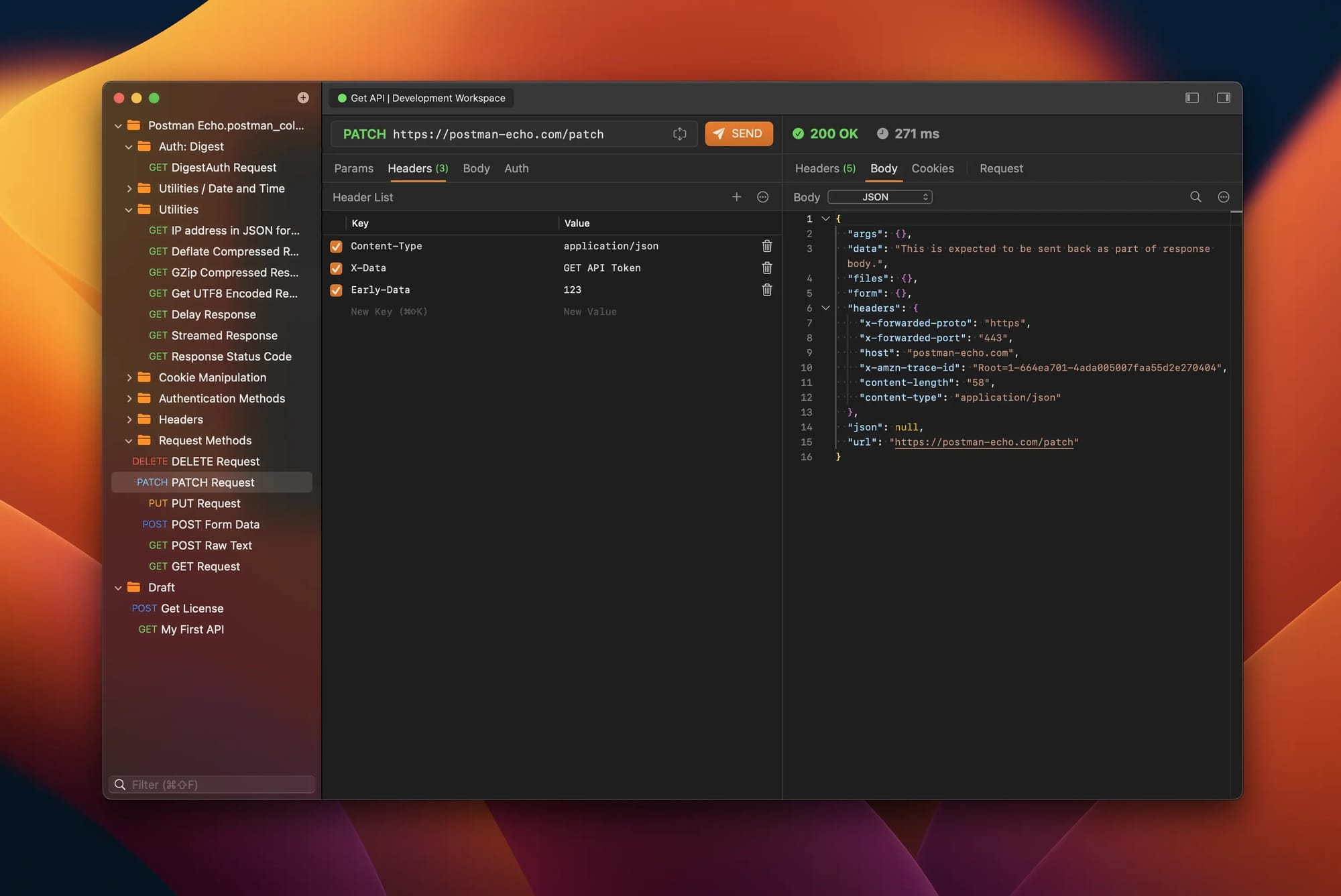
Created by TablePlus, the developers behind the excellent SQL client of the same name, GetAPI has the feeling of many macOS applications; It's here to be easy to work with, help individual developers out, but isn't trying to get stuck into edge-case enterprise stuff, confusing everyone else in the process.
- Availability: ❌ Web, ✅ macOS, ❌ Windows, ❌ Linux.
- Website: getapi.com
New Contender: Scalar
Scalar cannot be called popular yet because it's brand new! This simple HTTP client aims to be the first entirely OpenAPI-centric HTTP client, with online and desktop flavours available.
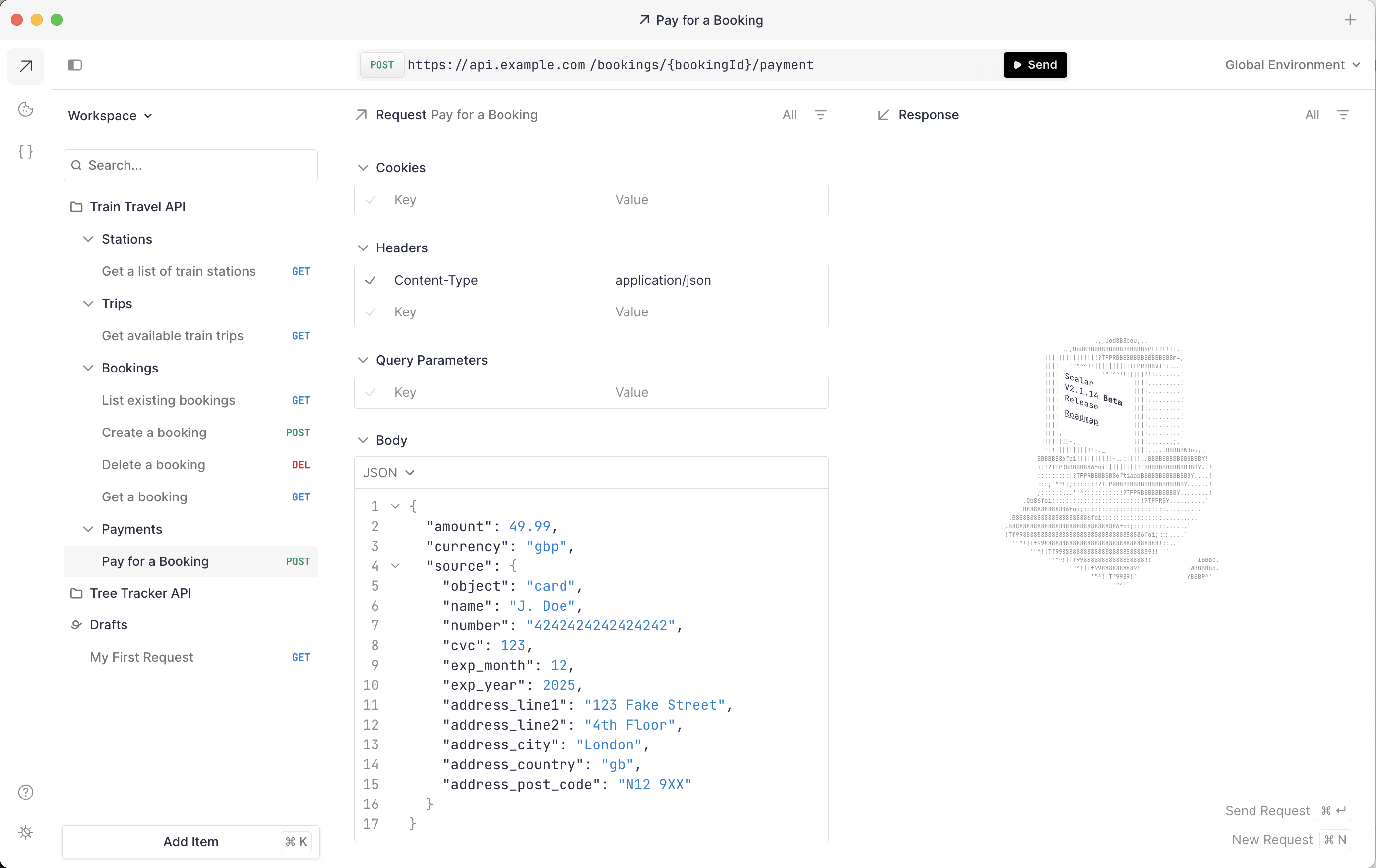
All of the other tools support OpenAPI to some extent, but generally this takes the form of an "Import" step, only used to get an API collection built up. After that you've got to spend the rest of your life repeatedly updating changes in the API collection and the API description it's meant to be based off of.
Whether you're using the API design-first or API code-first workflow, you're going to be adding new endpoints and evolving requests and responses throughout the lifecycle of the API, meaning that there is never a stage when the OpenAPI is "done".
Instead of trying to navigate the thankless task of keeping OpenAPI descriptions in sync with yet another proprietary collection format, Scalar takes a new approach, of making the entire process work off of your OpenAPI document. Open up a local openapi.yaml and make changes, as you add endpoints you'll see new operations pop up. As you add new examples they'll be saved to the document.
The Scalar team have gone all in with OpenAPI, not just in this client, but are building an ecosystem of handy open-source OpenAPI tools that solve different bits of the lifecycle. This client in-fact started life as an interactive API client embedded into their API reference documentation offering.
- Availability: ✅ Web, ✅ macOS, ✅ Windows, ✅ Linux.
- Website: scalar.com
Honorable Mentions
Here are some amazing HTTP clients that didn't make the article at first, but absolutely should be considered.



